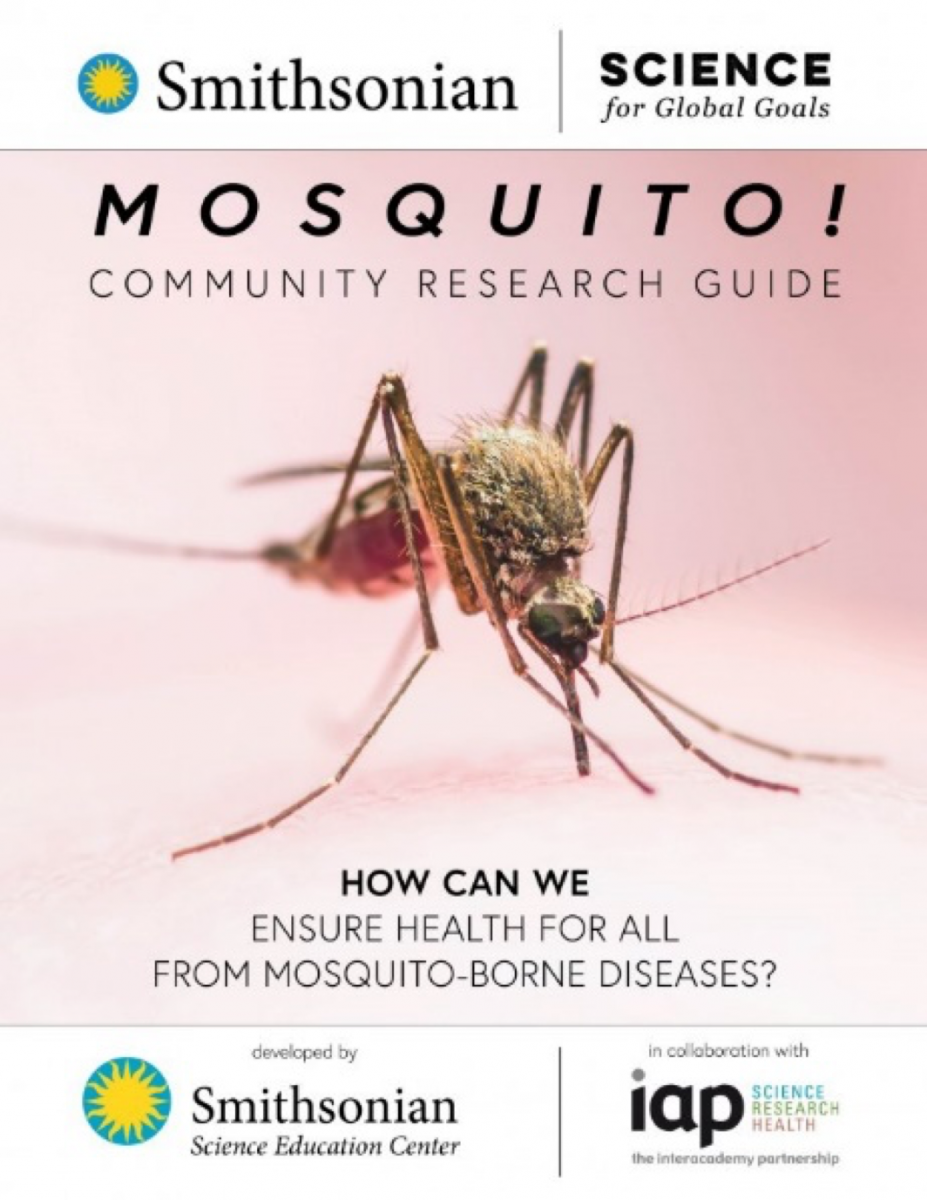Introducing Mosquito! Community Research Guide: How Can We Ensure Health for All from Mosquito-borne Diseases?
Have you ever considered mosquitoes and the illnesses they transmit from an ethical perspective? For example, do you think it’s ethical to kill all mosquitoes if that would protect humans from mosquito-borne diseases? You could also consider the issue from an environmental or social perspective. Should travel be restricted for people leaving countries where mosquito-borne diseases are currently present? Perhaps you have never thought about mosquitoes in these contexts. More than likely, you might have considered the economic cost of mosquitos, either to prevent them from biting you or to treat an illness caused by a mosquito-borne disease. But what about these other perspectives? Are they not also equally important to consider when working toward local and global solutions? If we only consider the economic impact of mosquitoes, we will never truly address all of the complexities within the global challenge to ensure health for all from mosquito-borne diseases. This is the issue students from across the globe will address with Mosquito!, the Smithsonian Science Education Center’s new curriculum module.
 Mosquito! Community Research Guide: How Can We Ensure Health for All from Mosquito-borne Diseases? Smithsonian Science Education Center
Mosquito! Community Research Guide: How Can We Ensure Health for All from Mosquito-borne Diseases? Smithsonian Science Education Center
Developed in collaboration with the InterAcademy Partnership and subject-matter experts from across the world, Mosquito! encourages students to think critically about a complex socio-scientific issue facing society. In addition, students are empowered to think about the diverse civic decisions we all make as they engage in inquiry-based learning within their local community. This freely available online resource is the first module in the Smithsonian Science for Global Goals (SSfGG) curriculum. Developed with the United Nations (UN) Sustainable Development Goals (SDG) as its foundation, Mosquito! takes students out of the classroom and into their community to conduct research. Using whatever resources they may have available, students will engage in research and experimentation from multiple perspectives (social, environmental, ethical, and economic) to define the dimensions of this problem in their local community.
Mosquito! is designed to be region- and grade-level agnostic, meaning teachers worldwide teaching students from ages 8 to 17 will be able to engage in the material. Broken up into seven parts, the module builds on a rich storyline that begins with students creating an identity map and defining the problem locally. The storyline will then build through community research on local knowledge, species distribution, transmission histories, habitats, and end with the development of a community action plan. Each part consists of a series of tasks teachers can customize to suit the need of their classroom. Additional task resources—in the form of videos, photographs, hands-on activities, community research protocols, and websites—are available to enhance and support student learning. Along the way, students will “Meet the Team” in a series of informational texts geared to introduce them to researchers from around the world working to address the same challenge of ensuring health for all from mosquito-borne diseases. These readings are also meant to expose students to a wide range of professions which we hope will pique their interest and get them thinking about careers they may be interested in pursuing. Lastly, “Meet the Team” readings give students a sneak peek into the lives of these experts as students compare their identity map with that of our subject-matter experts.
Next time you hear a mosquito hum by your ear and you swat at it, consider the social, ethical, economic, and environmental perspectives relating to mosquitoes and the illnesses they transmit. What solutions could you think of that might impact the health of others from mosquito-borne diseases?
 Mosquito Life Cycle: (L-R) Aedes Aegypti eggs iStock/Jorstan, larvae, pupa, head J. Stoffer, Walter Reed Biosystemics Unit
Mosquito Life Cycle: (L-R) Aedes Aegypti eggs iStock/Jorstan, larvae, pupa, head J. Stoffer, Walter Reed Biosystemics Unit
Mosquito! is freely available on Smithsonian Learning Lab, a digital tool that allows students from around the world, regardless of background or national origin, to access the world-class educative materials. The module is currently available in English and Spanish with many more translations to come. To learn more about Smithsonian Science for Global Goals, visit https://ssec.si.edu/global-goals.
